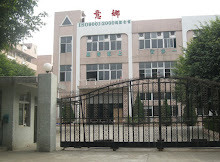is a city of about 1,000,000 people in central Zhejiang Province near the central eastern coast of the People's Republic of China. The city is famous for its small commodity trade and vibrant flea markets and is a regional tourist destination. Although administratively Yiwu is a county-level city, its fame nationally surpasses that of Jinhua, the prefecture-level city of which it is technically under jurisdiction.
Yiwu was founded in the Qin dynasty, at or about 222 BC. Yiwu's long history flourished as early as the Neolithic Age. Yiwu first became a county in 222BC and was renamed Yiwu County in the year 624 AD. In May 1988, the former Yiwu County was upgraded to a county-level city. In 1995, Yiwu ranked the 47th among China's 100 most powerful counties/cities regarding comprehensive economic strength and in the same year listed as Zhejiang's sole city among the nation's experimental counties/cities of comprehensive reform. In 2001, the Yiwu overall economy ranked 19th of all counties (cities) of China.
Yiwu's early culture has given birth to many great figures in the fields of literature, art military, education, and engineering. Among these were Chen Wangdao, China's first translator of the Communist Manifesto; Wu Han, historian and former deputy mayor of Beijing; Zhu Zhixi, the meritorious engineer in harnessing the Yellow River, and Zongze, a well-known general from the Song Dynasty who resisted aggression by the State of Jin.
Yiwu's early culture has given birth to many great figures in the fields of literature, art military, education, and engineering. Among these were Chen Wangdao, China's first translator of the Communist Manifesto; Wu Han, historian and former deputy mayor of Beijing; Zhu Zhixi, the meritorious engineer in harnessing the Yellow River, and Zongze, a well-known general from the Song Dynasty who resisted aggression by the State of Jin.
